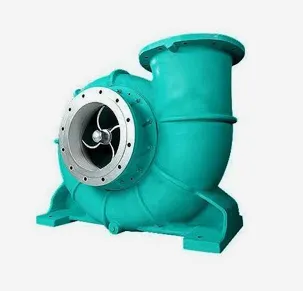Telugu
- Afrikaans
- Albanian
- Amharic
- Arabic
- Armenian
- Azerbaijani
- Basque
- Belarusian
- Bengali
- Bosnian
- Bulgarian
- Catalan
- Cebuano
- Corsican
- Croatian
- Czech
- Danish
- Dutch
- English
- Esperanto
- Estonian
- Finnish
- French
- Frisian
- Galician
- Georgian
- German
- Greek
- Gujarati
- Haitian Creole
- hausa
- hawaiian
- Hebrew
- Hindi
- Miao
- Hungarian
- Icelandic
- igbo
- Indonesian
- irish
- Italian
- Japanese
- Javanese
- Kannada
- kazakh
- Khmer
- Rwandese
- Korean
- Kurdish
- Kyrgyz
- Lao
- Latin
- Latvian
- Lithuanian
- Luxembourgish
- Macedonian
- Malgashi
- Malay
- Malayalam
- Maltese
- Maori
- Marathi
- Mongolian
- Myanmar
- Nepali
- Norwegian
- Norwegian
- Occitan
- Pashto
- Persian
- Polish
- Portuguese
- Punjabi
- Romanian
- Russian
- Samoan
- Scottish Gaelic
- Serbian
- Sesotho
- Shona
- Sindhi
- Sinhala
- Slovak
- Slovenian
- Somali
- Spanish
- Sundanese
- Swahili
- Swedish
- Tagalog
- Tajik
- Tamil
- Tatar
- Telugu
- Thai
- Turkish
- Turkmen
- Ukrainian
- Urdu
- Uighur
- Uzbek
- Vietnamese
- Welsh
- Bantu
- Yiddish
- Yoruba
- Zulu
Telephone: +86 13120555503
Email: frank@cypump.com
సెప్టెం . 21, 2024 18:17 Back to list
septic water pump
Understanding Septic Water Pumps Essential Components for Wastewater Management
Septic systems are a common method of wastewater management, particularly in rural areas where traditional sewer systems are not available. One crucial component of these systems is the septic water pump. This article explores the importance of septic water pumps, their operation, and maintenance requirements.
A septic water pump is an essential device that helps transport wastewater from the septic tank to the drain field or leach field. Once wastewater flows into the septic tank, solids settle at the bottom, forming sludge, while lighter materials like fats and oils float to the top, creating scum. The septic tank's design allows the liquid effluent to be discharged into the leach field for further treatment and disposal. However, if the leach field is situated at a higher elevation than the septic tank, a pump becomes necessary to move the effluent efficiently.
The operation of a septic water pump involves several components. At the heart of the system is the pump itself, usually submersible, which is situated within the septic tank. These pumps are designed to handle solids and semi-solids present in the wastewater. When the water level in the tank rises to a predetermined height, float switches activate the pump, allowing it to start transferring the effluent to the leach field. This automatic operation ensures that the system functions continuously and efficiently.
septic water pump

Septic water pumps come in various types, including effluent pumps, grinder pumps, and siphon pumps, each serving different needs. Effluent pumps are typically used in conventional septic systems and are designed to handle relatively free-flowing liquid. Grinder pumps, on the other hand, are equipped with a cutting mechanism that allows them to break down solids into a slurry, making it easier to transport the wastewater. Siphon pumps utilize gravity to facilitate the movement of fluid, making them a less common option in modern systems.
Maintenance of septic water pumps is essential for ensuring their longevity and efficiency. Regular inspections can help identify potential issues before they escalate into more significant problems. Homeowners should be vigilant for signs of malfunction, such as unusual noises, slow pump operation, or backups in the plumbing system. Additionally, it is crucial to adhere to recommended maintenance schedules, which often include routine cleaning and service checks by professionals. This proactive approach can prevent costly repairs and ensure the system operates effectively for years to come.
In conclusion, septic water pumps play a vital role in the efficient functioning of septic systems. They facilitate the movement of wastewater, ensuring proper treatment and minimizing environmental impact. Understanding the different types of septic pumps and their maintenance requirements can empower homeowners to make informed decisions about their wastewater management systems. By prioritizing regular maintenance and addressing any issues promptly, homeowners can extend the lifespan of their septic systems and protect their property from potential health hazards associated with poorly managed wastewater.
-
Horizontal Split Case Pump with GPT-4 Turbo | High Efficiency
NewsAug.01,2025
-
ISG Series Pipeline Pump - Chi Yuan Pumps | High Efficiency, Durable Design
NewsAug.01,2025
-
Advanced Flue Gas Desulfurization Pump with GPT-4 Turbo | Durable & Efficient
NewsJul.31,2025
-
ISG Series Vertical Pipeline Pump - Chi Yuan Pumps | Advanced Hydraulic Design&Durable Construction
NewsJul.31,2025
-
ISG Series Vertical Pipeline Pump - Chi Yuan Pumps | Energy Efficient & Low Noise
NewsJul.31,2025
-
pipeline pump - Chi Yuan Pumps Co., LTD.|High Efficiency&Low Noise
NewsJul.31,2025










